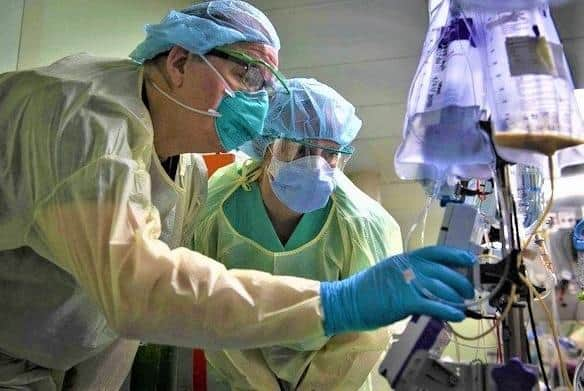Ireland can avoid return to full lockdown, WHO Covid expert says
and live on Freeview channel 276
The Government has announced a range of fresh measures to address a worrying rise in coronavirus cases which has left Ireland’s health system under severe pressure heading into the winter.
Health Minister Stephen Donnelly has said no-one can rule out a return to lockdown as cases surge to their highest levels since January.
Advertisement
Hide AdAdvertisement
Hide AdThe WHO’s Dr David Nabarro has said he does not believe Ireland is heading back to “stringent lockdowns”.


He said: “This virus has a capacity to form really quite dramatic surges of infection if there are susceptible people in a community. It’s kind of inevitable.
“What’s interesting in the Irish situation is that it’s become quite dramatic in the last week or two.
“But it’s not so bad that I’m in a position of saying ‘oh terrible, terrible’.
Advertisement
Hide AdAdvertisement
Hide Ad“You’ve got these surges coming up, you’ve got health services quite stretched, but the feeling is that the Government has a pretty clear idea of what’s going on, and that there will have to be perhaps some restrictions on what people do.
“But I don’t get a feel that you’re heading into stringent lockdowns again, I very much hope that won’t happen.”
The Covid incidence rate in Ireland has soared to 1,100 cases per 100,000 people each week.
Dr Nabarro told RTE’s Today with Claire Byrne that while some restrictions will be needed, he believes “it won’t be necessary to go into a complete lockdown”.
Advertisement
Hide AdAdvertisement
Hide AdHe said that while the incidence rate is high, measures can be taken to avoid a full lockdown, which should only be used as a “last resort”.
“What one needs to do is to really dissect very carefully to find out where is the virus being transmitted, in which age groups, as well as in which occupational groups and locations,” he said.
“Once we’ve got a bit of an understanding about where transmission is occurring, (we need) to work with the communities that are most at risk and see whether there are ways of reducing transmission at that community level.
“Then, to try to avoid going for a whole county or a whole country, stay at home, type lockdown.
Advertisement
Hide AdAdvertisement
Hide Ad“The reason is that if we have to go to lockdown, it absolutely has to be the last resort.
“Lockdowns cause all sorts of other challenges in terms of how people feel when they’re confined at home.
“Also, poorer people really tend to fare badly in lockdowns, because they can’t get the work they need, especially if they’re in the informal economy.
“So, let’s try to keep the numbers coming down without the full lockdown.”
Advertisement
Hide AdAdvertisement
Hide AdDr Nabarro praised Ireland’s public health officials and said they were capable of introducing measures that would avoid the need for lockdown.
He said: “The reason why I say I think that’s possible in Ireland is that I’m really confident that the public health people are able to work out what might be the most appropriate restrictions.
“If things get really bad, yeah, they’ll have to go back into lockdown.
“I’m just hopeful on the basis of what I’m reading now, that this this should not be possible, especially because of acting now and acting quite quickly.”